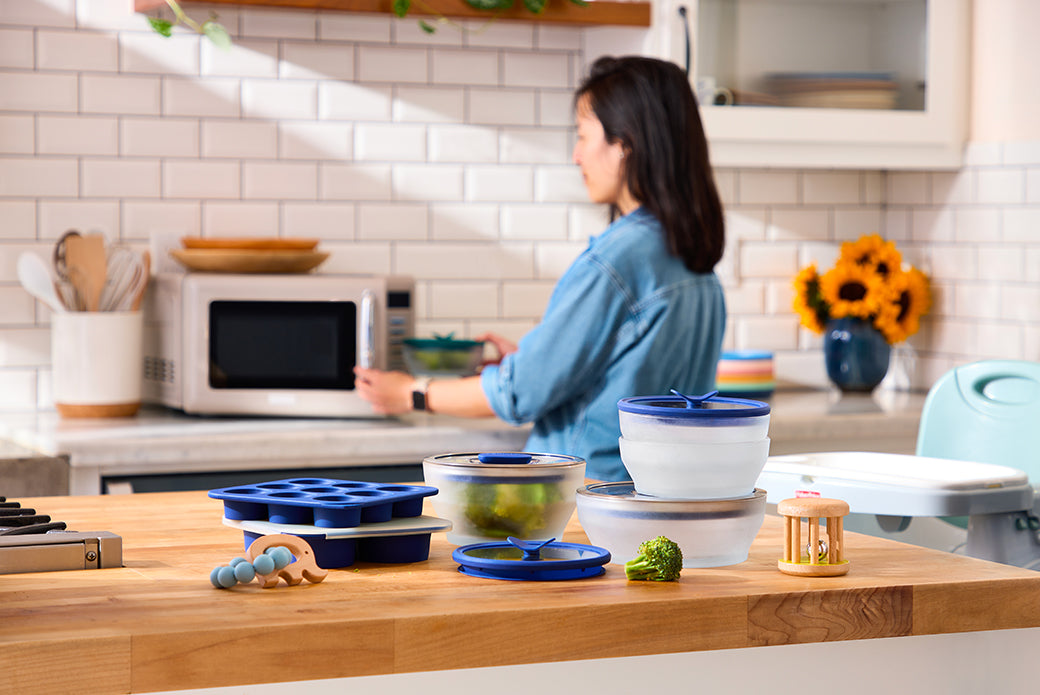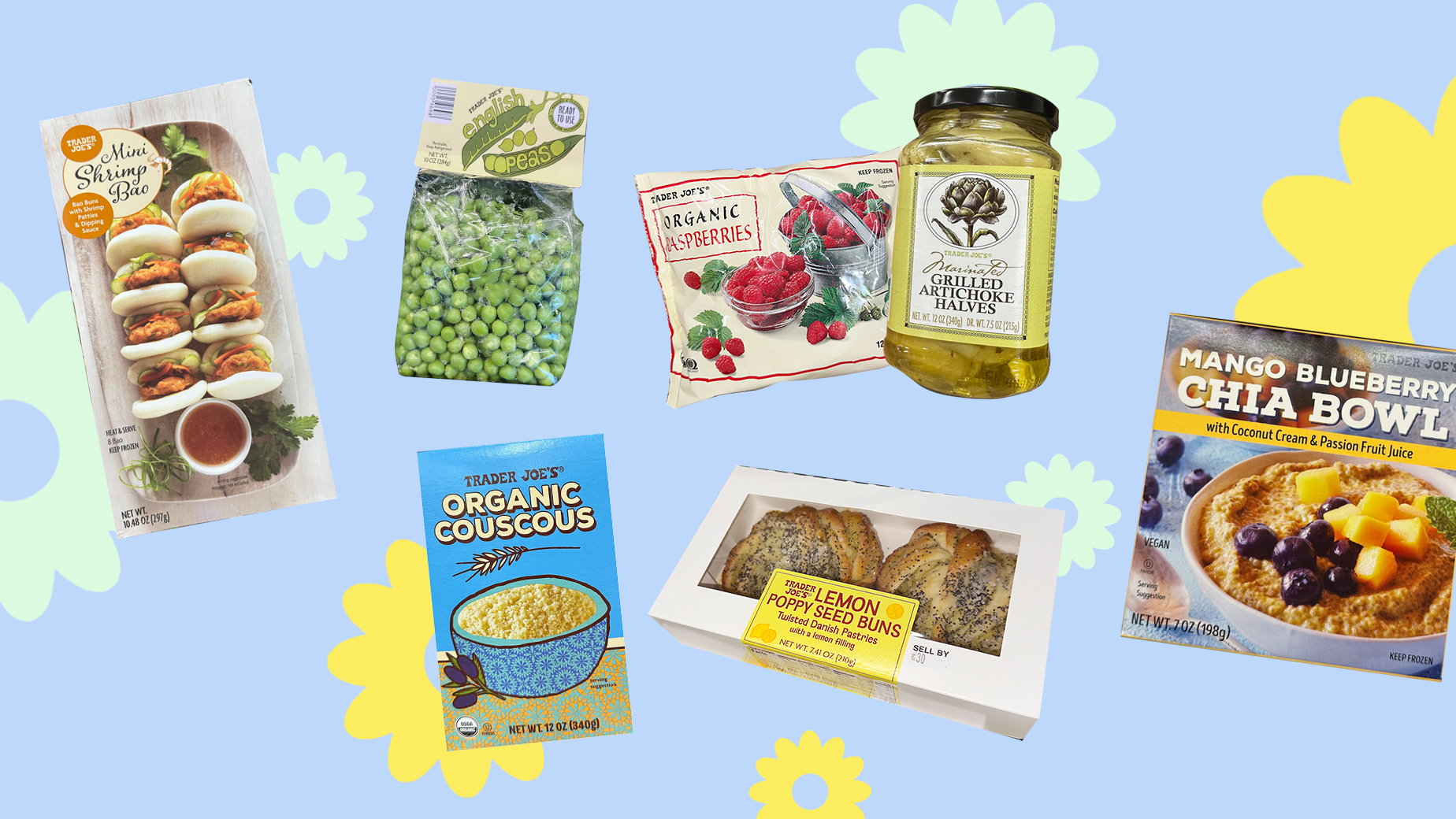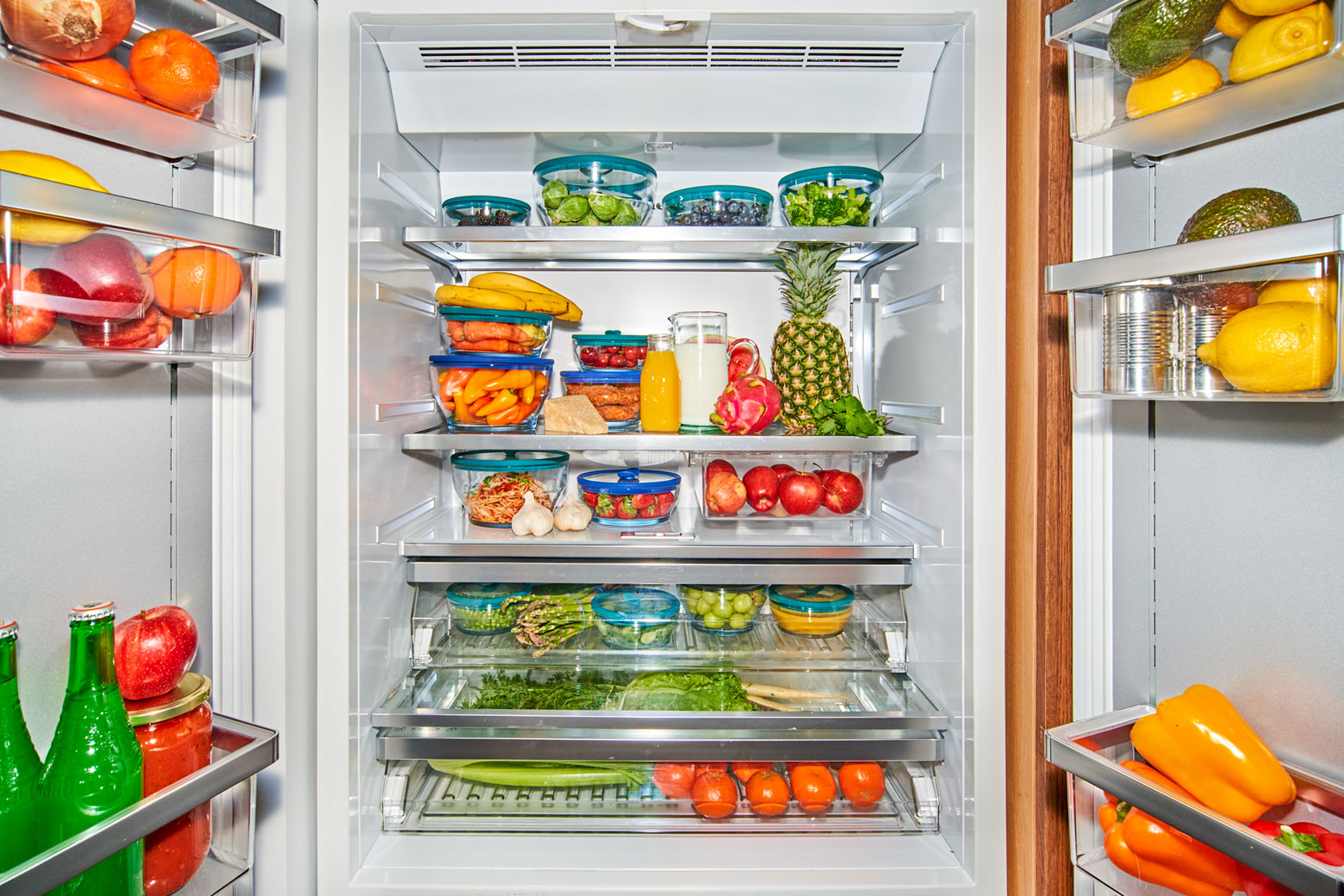Attention, busy parents and caregivers! Are you in search of time-saving techniques in the kitchen? We got you. In this article, we'll explore all that you need to know to cook delicious, healthy, fast food in the microwave for hungry babies and toddlers. You’ll learn what foods are best to cook for kids in the microwave, and we’ll walk you through simple microwave cooking instructions for baby-friendly vegetables like carrots, snap peas, broccoli, and more.
When it comes to these guidelines, we polled information from a variety of trustworthy sources. The most important one? Real parents! A significant percentage of Team Anyday are moms of young children, including Steph, our founder who gave birth to her first child in the midst of launching our pioneering brand. So, trust us: We have firsthand experience in getting little ones to eat good, nutritious food while managing a demanding work-life balance.
Is it safe to microwave food for babies and toddlers?
The bottom line is yes — the microwave is a safe and effective way to cook and reheat food.
But we get it! There are a lot of misconceptions about the microwave. We’ve all heard the many microwave myths about this common household appliance. But that’s just the thing — more than 90% of American homes have microwaves, so you can rest assured that this appliance is very safe for common household use. Still skeptical? Just ask the FDA.
Here at Anyday, we are on a mission to offer a new perspective on this epic appliance, one that is backed by Harvard University and the World Health Organization (WHO), among other leading sources. Not to mention our reliance on the appliance to feed our own kids!
One of the safety concerns that should be addressed around microwaving food focus on temperature of the food itself. It is important to check the surface temperature of your child’s food prior to serving them. The FDA recommends: “Microwave 4 ounces of solid food in a dish for about 15 seconds on high power. Always stir, let stand 30 seconds, and taste-test before feeding.”

Why microwave food for babies and toddlers?
Microwaving food for babies and toddlers offers several benefits in terms of convenience, nutrition, and ease for parents and caregivers:
- Microwaving provides a quick and efficient way to heat baby food, allowing busy parents to prepare meals in a matter of seconds. When the tantrum is at a 10, the microwave is your best friend.
- The microwave retains more nutrients inside of the food compared to other cooking methods. This is especially important for growing children who need those essential vitamins and minerals.
- Microwaving allows for easy portion control, enabling parents to heat and serve small amounts of food at a time, minimizing waste and ensuring freshness.
Overall, microwave cooking is a practical and time-saving solution for parents, while still preserving foods’ nutritional value for their little ones.
What is the best container for microwaving my child’s food?
Introducing the ultimate solution for parents: Anyday microwave cookware. With our plastic-free dishes, you can conveniently cook, store, and serve your little one's meals in a single dish.
- Anyday’s steam-trapping lid keeps food moist and flavorful, trapping flavor and nutrients inside your child’s food. It also evenly heats food, reducing the risk of cold and hot spots.
- Skip the pre-made pouches and store-bought frozen meals; microwaving kid-friendly food from scratch is easier than ever.
- Steam nutrient-dense produce in the matter of minutes, no added fat or salt necessary.
- Use Anyday’s silicone-lined lids to store even the smallest amount of food for later.
How to Microwave Food for Babies and Toddlers
When we started researching the best way to microwave food for babies and toddlers, we consulted our friends at Solid Starts, the leading knowledge database for baby food. We rounded up a few common ingredients such as broccoli, sweet potatoes, and peas, cross-referenced them on the Solid Starts website and adjusted for the microwave accordingly.
We developed these guidelines for microwaving a variety of foods for any age, from baby to toddler. We determined these categories based on age and developmental ability:
| 6-12 Months | 12-18 Months | 18+ Months |
|---|---|---|
| No / few teeth | Some teeth | More teeth |
| Avoid choking hazards | Smaller pieces okay | Introduce harder, crisper foods |
| Larger chunks and/or purees | Pincer grip | Introduce utensils for mobility |
| Single ingredients | Introducing mobility skills | Exploring tastes and textures |
Our Test Kitchen team then took each ingredient through a series of tests to determine the best texture, size, and cook times for each age range. All of the results were then validated by our most trustworthy testers: Real parents of babies, toddlers, and kids.
We set out testing a variety of ingredients to explore the following questions:
- Safety: Is it an ingredient safe for kids at this stage?
- Texture: Is the texture of the cooked vegetable age-appropriate?
- Ability: Are those with little or no teeth able to bite or chew the microwaved food? Can the ingredients be easily mashed with a fork, spoon, or little hands?
Broccoli
Cut fresh broccoli into 1” or smaller florets, or opt for the frozen florets. We do not recommend cooking broccoli stems for ages 6-12 as it doesn’t result in the most consistent texture. Instead, you may puree or mash steamed broccoli stems with some water or milk.
| 6-12 Months | 12-18 Months | 18+ Months | |
|---|---|---|---|
| Vegetable | 2 cups broccoli florets | 2 cups broccoli florets | 2 cups broccoli florets |
| Water | 2 tablespoons water | 2 tablespoons water | 2 tablespoons water |
|
(1000w) |
4 minutes | 3 minutes | 2-3 minutes |
| Notes | Very soft | Soft | Soft with a slight bite |
Level It Up:
- Use leftover steamed broccoli to make shortcut Veggie Tots.
- Finely chop broccoli and add to mashed avocado for a fiber-rich guacamole dip.
- Add herbs such as thyme, parsley, tarragon, or dill, discarding any woody stems before serving.
- Blend with chicken stock, yogurt, and cheese for a vibrant veggie-forward pasta sauce.
- Warm Broccoli Salad. Make it kid-friendly by substituting fresh garlic with garlic powder. Use peanut or almond butter instead of sesame seeds for added protein.
Carrots
We found that regular carrots cook more evenly compared to baby carrots. The thin outer layer of baby carrots remains tough and chewy, even when overcooked.
|
6-12 Months
|
12-18 Months
|
18+ Months
|
|
|---|---|---|---|
|
Vegetable
|
2 cups carrot chunks
|
2 cups carrot chunks
|
2 cups carrot chunks
|
|
Water
|
2 tablespoons water
|
2 tablespoons water
|
2 tablespoons water
|
|
Cook Time
(1000w) |
4 minutes
|
3 minutes
|
2-3 minutes
|
|
Notes
|
Very soft
|
Soft and tender.
|
Soft with a slight bite.
|
Level It Up:
- Toss with maple syrup and butter for a sweet treat.
- Blend with stock and coconut milk for a creamy soup.
- Mix with steamed fresh mashed peas for a quick vegetable medley.
- Honey Glazed Carrots: Substitute honey for maple syrup if child is under one year old.

Snap Peas
Some snap peas may have tough, fibrous stems. Be sure to remove these prior to cooking snap peas in the microwave.
| 6-18 Months | 18+ Months | |
|---|---|---|
| Vegetable | 1 cup snap peas | 1 cup snap peas |
| Water | 4 tablespoons water | 4 tablespoons water |
| Cook Time (1000w) |
4 minutes | 3 minutes |
| Notes | Very soft. Some pieces came out a bit shriveled, but the texture is right for this age group. | Cooked and tender. Needs straining, but is a good texture overall. |
Level It Up:
- Season with soy sauce and serve with white rice.
- Top a piece of soft bread with ricotta cheese and chopped snap peas.
- Season with fresh lemon zest and garlic powder.
- Serve with hummus or greek yogurt.
- Snap Peas with Radishes: Make it kid-friendly by substituting the horseradish with Greek yogurt or sour cream.
Cauliflower
Cut fresh cauliflower into 1” florets, or opt for the frozen florets. We do not recommend cooking cauliflower stems in the microwave for ages 6-12 as it doesn’t result in the most consistent texture. Instead, you may puree or mash steamed stems with some water or milk.
|
6-18 Months
|
18+ Months
|
|
|---|---|---|
|
Vegetable
|
1 cup cauliflower florets
|
1 cup cauliflower florets
|
|
Water
|
2 tablespoons water
|
2 tablespoons water
|
|
Cook Time
(1000w)
|
5 minutes
|
4 minutes
|
|
Notes
|
Soft easy to chew.
|
Soft and easy to chew but with a small bite.
|
Level It Up:
- Add steamed florets to white cheddar pasta for a sneaky swap.
- Season with mild curry powder for extra flavor.
- Puree with cottage cheese for a silky smooth sauce or to eat as-is!
- Melt some cheese on top of the cauliflower and serve with marinara sauce.
- Smoky Cauliflower: Make it kid-friendly by substituting the smoked paprika with cinnamon. Add parmesan cheese after the cauliflower is cooked.

Sweet Potato
We recommend microwaving sweet potatoes with a small amount of water to achieve a more tender texture. Plus, the added moisture makes peeling easier! Simply scoop out the flesh and serve.
| 6-12 Months | 12+ Months | |
|---|---|---|
| Vegetable |
|
|
| Water | 2 tablespoons water | 2 tablespoons water |
| Cook Time (1000w) | 4-5 minutes | 4 minutes |
| Notes | Soft and easy to chew. | Soft and easy to chew but with a small bite. |
Level It Up:
- Blend with chicken or vegetable stock and quinoa for a protein-rich puree.
- Add to beaten eggs for a quick scramble.
- Season with browned butter for a warm and nutty side dish.
- Mash with maple syrup and cinnamon for a sweet treat.
- Blend with applesauce and freeze in popsicle sticks.
- More recipes: Candied Sweet Potatoes

Frozen Peas
|
6-12 Months
|
12+ Months
|
18+ Months
|
|
|---|---|---|---|
|
Vegetable
|
1 cup frozen peas
|
1 cup frozen peas
|
1 cup frozen peas
|
|
Water
|
1 tablespoon water
|
1 tablespoons water
|
1 tablespoon water
|
|
Cook Time (1000w)
|
3-4 minutes
|
3-4 minutes
|
3-4 minutes
|
|
Notes
|
Consider mashing to reduce choking hazard
|
Consider mashing to reduce choking hazard
|
Mash if needed, or start feeding whole
|
Level It Up:
- Cook with herbs such as mint, chives, tarragon, or basil, then remove or mash with the peas.
- Season with brown or melted butter, parmesan cheese, and olive oil
- Add into scrambled eggs for more nutrition
- Blend with greek yogurt for a tasty dip.
- Blend with chicken or vegetable stock for a quick soup
- More recipes: Pea Purée, Cod with Peas and Carrots, or Pasta Alfredo Primavera.
Zucchini and Summer Squash
|
6-12 Months
|
12-18 Months
|
18+ Months
|
|
|---|---|---|---|
|
Vegetable
|
1 cup diced zucchini or summer squash
|
1 cup diced zucchini or summer squash
|
1 cup diced zucchini or summer squash
|
|
Water
|
1 tablespoon water
|
1 tablespoon water
|
1 tablespoon water
|
|
Cook Time (1000w)
|
3 minutes
|
2 minutes
|
2 minutes
|
|
Notes
|
Easy to chew.
|
Soft and easy to chew but with a small bite.
|
Soft and easy to chew but with a small bite.
|
Level It Up:
- Mix steamed zucchini into scrambled eggs for a veggie scramble.
- Mash with roasted eggplant and garlic powder for a quick babaganoush.
- Add to mashed avocado for added texture.
- Blend with full-fat greek yogurt and fresh mint for a tasty dip.
- Add zucchini and cinnamon to pancake batter for a take on quick zucchini bread.
- More recipes: Creamy Zucchini Pasta, Zucchini Butter








Share:
The Truth About Microwaves: 4 Myths You Should Stop Believing
Expert Tips for Feeding Toddlers According to Amy Palanjian, Creator of Yummy Toddler Food